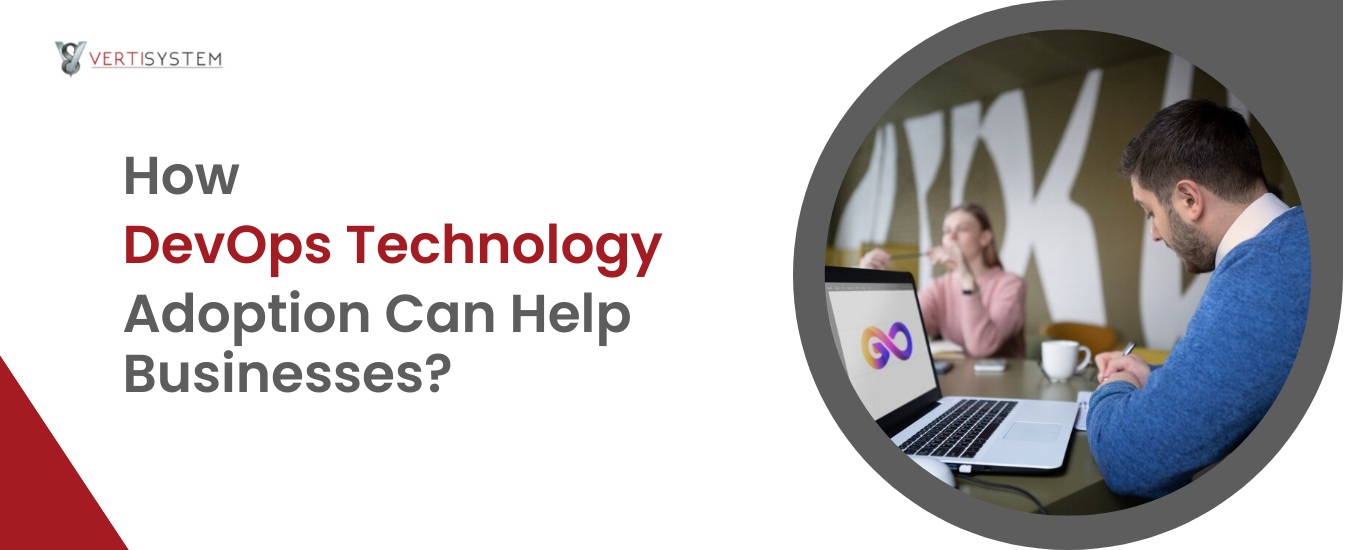The modern IT industry comes with its own set of challenges to ensure efficiency levels that were never thought achievable. Thanks to DevOps technology, it has become the standard to evaluate the overall sync in operations for any enterprise today.
However, despite being around for a long time, there are still enterprises who are trying to understand what it’s all about.
We will touch upon a few important reasons why DevOps adoption can help businesses in their quest for excellence, and a bit of an overview about what DevOps is as well.
Let’s get to it.
What is DevOps Technology?
The term ‘DevOps’ is an amalgamation of the names of Development and Operations teams, that highlights an approach, allowing enterprises to easily maintain existing deployments and quicker application development.
It’s not right to term DevOps as a technology of some kind- rather, it’s an IT delivery approach that brings people, tools, as well as practices that help in getting ahead of those organizational silos existing between the development and operations teams. It takes the best attributes of both teams to define controlled iterations in the web and mobile app development domain.
Here are a few statistics laid by Strong DM that will help you understand how important DevOps has become for organizations:
- At a CAGR of 18.95%, the global DevOps market size is expected to reach $12,215.54 million by the year 2026.
- By implementing DevOps, organizations have found a 60% reduction in time to handle support cases, and 33% more time is spent on sensible infrastructure improvements.
How DevOps Adoption Can Help Businesses?
We have divided the advantages of DevOps into different categories to make it easier for you to understand where it makes the most difference:
- Technical advantages
- Cultural advantages
- Commercial/Business advantages
Technical Advantages
- Quicker Bug Fixing
A DevOps team enables continuous integration, where they constantly check the code and create builds at a rapid pace. Smaller changes in the code are made more frequently instead of bigger code changes less frequently.
Here’s how this process benefits businesses:
- Changes and releases become smaller than before with DevOps
- All changes are subjected to automated testing before heading to production
- When a test fails, the bug gets fixed right away, instead of tracking it, managing it, and then fixing it
- Saves Time
Saving time is one of the biggest benefits when it comes to DevOps. As it fosters communication between development and operations, the development cycle is significantly reduced as the code is released into the production environment multiple times. In short, a production-to-release cycle becomes a daily cycle than a traditional one, which typically takes anywhere between 3-6 months.
Cultural Advantages
- Better Collaboration
DevOps encourages better collaboration and communication between the development and operations teams, which means that they need not follow some traditional hierarchy and can communicate freely. Best practices and technical knowledge are a large part of this communication, assisting you to build a great product for your business.
With Agile methodology as its backbone, larger code is broken into smaller pieces, leading to better development and flexible programming.
- Better Efficiency
Many reports over the years have demonstrated that the effectiveness in change management increases with DevOps implementation in the company. When team members in IT, information security, and development areas have more input and influence on the process, this effectiveness significantly increases.
Business Advantages
- Better Customer Satisfaction
The biggest advantage of DevOps is providing users with robust software solutions and excellent user experience. The main objectives for organizations are becoming quicker, more agile, efficient, and structured in delivery. In short, DevOps allows customers to ensure better customer experiences by designing highly innovative solutions.
- Enhanced Efficiency
Implementing DevOps and other automation tools like Git, Docker, and AWS, it becomes very simple for teams to identify any bottlenecks. The result is a significant reduction in the overall deployment time. DevOps offers a lot of velocity too, helping companies get a competitive advantage by innovating faster, ensuring more efficiency, as well as aligning with market changes.
A Few Things to Think About, Though
While there’s no mistaking that a nicely implemented DevOps culture is a huge benefit for businesses in navigating their way through the future, here are some DevOps challenges that you should consider before finally going ahead with it:
- DevOps Might Not be Needed When the Releases are Few
If your product entails the requirement of making just a few software updates in the whole year, and where they don’t make the release process troubling in any significant manner, then there’s not much sense in getting processes aligning with DevOps.
- DevOps Brings a Cultural Switch
When an organization has been around for a considerable amount of time, a chain of command evolves over the years. While you can make it a gradual process, it’s always going to be difficult to bring everyone on to the same page.
Every step in DevOps process brings a feedback process in the DevOps cycle, all the people in the workforce need to be comfortable with the new culture. Failure to ensure this can lead to an imploded DevOps implementation.
Vertisystem: Delivering Agile Working Process with DevOps
With Vertisystem as one of the leading DevOps consulting firms, you can transform the way your development and operations teams work, bringing in a new revolution in the software deployment and delivery processes, and giving those traditional processes a run for their money.
Connect with our DevOps experts and schedule a consultation call for quicker and more efficient processes today!



